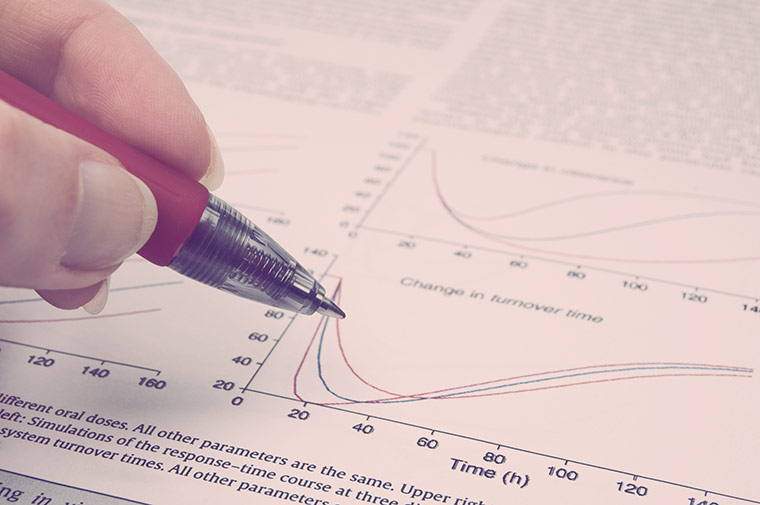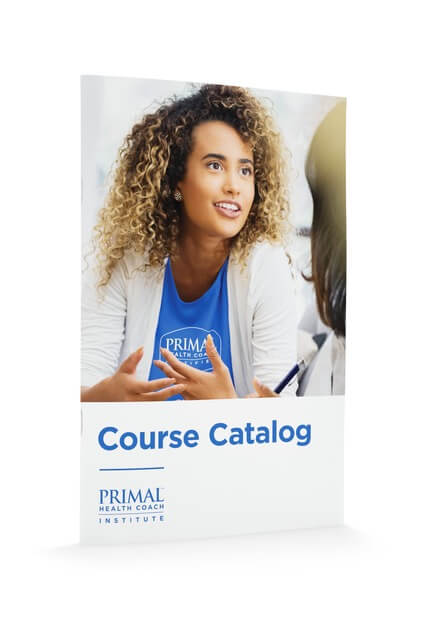
An essential part of being a health coach is staying up to date with the latest scientific findings relating to chronic metabolic disease, exercise and nutrition.
Whilst there are reputable health and lifestyle blogs and websites, the best and most reliable way to stay up to date with the latest scientific breakthroughs is to retrieve the information from the primary source—the scientific article.
Before you can tackle the article, you first need to find it!
In this post we will define what a scientific article is and then breakdown the process of finding a scientific article into three simple steps:
- How to find a scientific article
- How to perform an effective keyword search using PubMed
- How to obtain a copy of a scientific article
What Is a Scientific Article?
Scientific articles come in different formats. They each serve their unique purpose and they each contain a wealth of information. Here we will discuss what the different types of scientific articles are and the general format they each follow.
Original Research Article
An original research article presents a body of research performed by a research group to address a specific question or hypothesis. Original research articles are published in peer-reviewed journals, meaning that they have gone through a stringent review process before being published and made public.
Here’s an example of an original research article that investigates vitamin D deficiency in postmenopausal women.
The general format of an original scientific article runs as follows:
- Title – A brief summary of the research.
- Author List – The people who contributed to the research.
- Institute information – Where the research was undertaken.
- Abstract – Summary of the research.
- Introduction – Background information to put the body of work into context.
- Methods and Materials – How the research was performed and the equipment used to perform the experiments.
- Results –This is the heart of the paper, revealing the findings, and will usually consist of a mix of text, tables and graphs.
- Discussion – How the findings from this body of research build on what was previously known.
- Conclusions – The take-home message from the study.
- Reference list – A list of the literature that was cited throughout the paper.
Review Article
A review article is a comprehensive summary of the literature relating to specific topic. Review articles are often written by experts in a particular field, and undergo a very similar peer-review process to that of an original article.
Unlike an original article, review articles don’t present any new findings. However, they are an excellent resource if you want to learn about a particular topic in depth.
Review articles comprise of a combination of text, tables and diagrams to bring together a concept. The reference list is normally quite extensive and can be used as a resource to locate an original article that may be of interest to you.
Here’s an example of a review article which discusses the role of vitamin D in hygiene.
Meta Analysis
A meta analysis uses statistics to combine data from multiple studies. When the treatment effect is consistent from one study to the next, meta analysis can be used to identify this comment effect. Meta analysis is often performed by the pharmaceutical industry to prove the efficacy and safety of a compound before it can gain approval as a new drug by a regulatory agency.
Here’s an example of a meta analysis addressing the outcomes of vitamin D insufficiency and the risk of adverse birth outcomes.
Conference Proceeding
An academic conference is a gathering of scientists and researchers who present and discuss their research to one another. Academic conferences provide an important avenue for researchers to establish inter-institutional collaborations and exchange ideas.
Conference proceedings are the collection of academic papers that were presented and published at an academic conference. Conference proceedings often contain cutting edge research that has yet to undergo peer-review.
Here’s an example of the vitamin D conference proceedings workshop 2015.
Tools and Resources to Help You Find Scientific Articles
The best way to find scientific articles is to use the tools and resources that researchers and medical professionals use.
The two most popular and freely available resources to retrieve scientific articles are PubMed and Google Scholar and here we’ll compare these two resources for usability and content.
PubMed
PubMed is a free search engine that primarily accesses the MEDLINE database, which contains journal citations and abstracts for life sciences and biomedical topics. The MEDLINE database is human curated, meaning that journals are selected for inclusion by humans based on scholarly criteria and by literature review committees.
The biggest advantage of using PubMed is that you know that most the articles retrieved using this database have undergone stringent peer-review and the studies have been undertaken in reputable research institutes. For these reasons PubMed is the tool of choice when retrieving scientific articles for most researchers and medical professionals.
Google Scholar
Google Scholar is a non-human curated database. It is a search engine that scans the whole internet for “scholarly literature”, and narrows internet searches based on machine-automated criteria. Criteria for inclusion as “scholarly” in Google Scholar is purely based on publishers submitting their journals to Google Scholar. It’s important to note that not all publishers work equally with Google Scholar, which can greatly effect which articles are retrieved when performing a keyword search.
One of the biggest benefits to Google Scholar is that it includes resources that are not part of the PubMed, such as conference proceedings, books and reports, but it is important to note that articles found using Google Scholar are not necessarily peer-reviewed, which means that the experimental procedures or the interpretation of the findings from these resources may be biased.
How to Perform an Effective Keyword Search Using PubMed
The most effective method for finding scientific articles using PubMed is to perform a keyword search.
For example, if you are interested in finding articles relating to “Vitamin D” the most effective keyword search would be:
- Vitamin D
If you would like to refine your search you could add some Boolean operators such as:
- Vitamin D AND bone density
You can refine your search further by excluding terms or phrases, for example:
- Vitamin D AND bone density NOT sunlight exposure
Refining your keyword search can help you find articles that are most relevant to you.
You can also set up an automatic keyword alert using PubMed. You can decide on the word or phrase you would like to use as well as the frequency of the alert, which will be sent to you in an email as a citation list.
How to Obtain a Copy of a Scientific Article
PubMed can be used to retrieve journal citation information (article title, author list, date of publication and article abstracts), but not the articles themselves.
Some journals provide open access to their articles, which means that the article is freely available to download. However, many journals require either a once off payment for the article or a journal subscription in order to access the full text. However, there are ways to get around this.
ResearchGate is a social media/networking site for scientists. Each user has a profile where they can post their publications (as long as they do not breech any copyright laws) so that they are freely available to fellow scientists.
Whilst membership is restricted to academics and researchers (you need an academic or institutional email account to sign up to ResearchGate), the founders of ResearchGate strongly believe in the power of free knowledge, and thus all content posted on ResearchGate is accessible without being logged in, including scientific articles.
PubMed Central (PMC) is an electronic archive containing more than 3 million freely available scientific articles published in life sciences and biomedical journals, most of which have a corresponding entry in PubMed.
Contacting the corresponding author is another way to get a copy of an article. Scientific articles have a corresponding author listed on the first page and most authors will be happy to share their article with you as long as it doesn’t breech any copyright laws.
Finding relevant scientific articles efficiently and effectively is a hugely beneficial skill to master as a health coach. The next post in this series will explore how to read and understand a scientific article.



